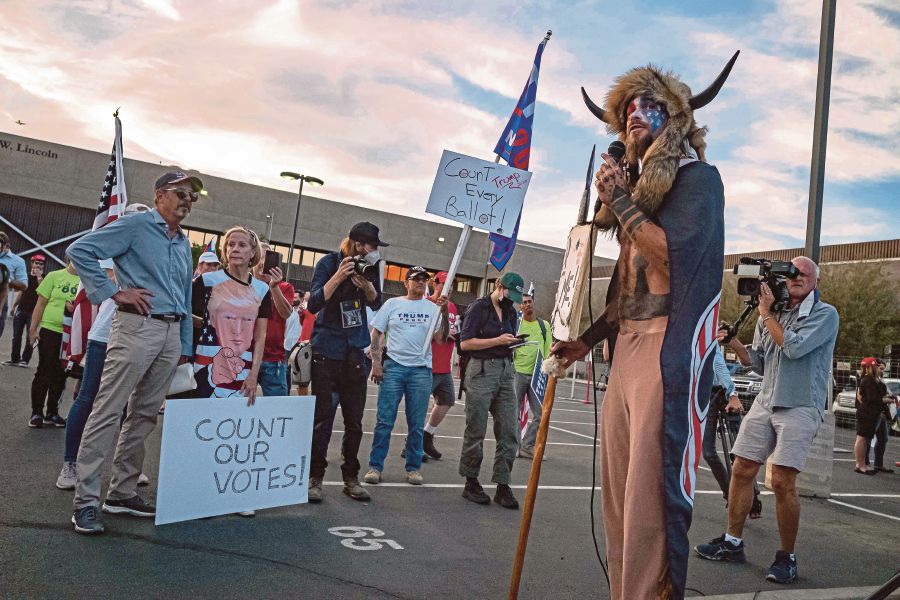
RUNNING United States elections has always been a complicated job for local officials, requiring the corralling of hundreds of volunteers, staying on top of ever-changing legal requirements, and now also combating misinformation and disinformation.
Running elections "has become one of the most high-profile responsibilities that county government does", said Jennifer Liewer, deputy elections director for communications for Maricopa County in Arizona.
Maricopa, one of the country's most populous voting jurisdictions, has been a hotbed of electoral scrutiny in recent years, weathering 50 suits since the contested 2020 election, Liewer said.
"There have been a lot of allegations, false information and narratives that aren't accurate that we have had to combat."
For Maricopa County, this has meant new staff, extensive fact-checking efforts, online cameras in tabulation centres, even an "official ballot" mascot that attends local professional basketball games.
This work is part of a deeper trend that has emerged since the pandemic, with local officials increasingly forced to address false information about public health, migration and urban planning strategies.
False information has not only changed every aspect of election administration, but local officials often bear the brunt of it given their visibility in their communities, said Amy Cohen, executive director of the National Association of State Election Directors.
"False information is one of the greatest challenges going into November," she said, referring to the national election on Nov 5.
"That is the thing that keeps a lot of us up at night, because you can't predict the narrative that will take off."
Across the globe, local officials are a key, untapped resource in addressing rising false information, said Paul Costello, a senior manager with the German Marshall Fund's cities programme.
Previously, cities did not tend to address false information as a topic itself, said Costello, who in recent months has been talking with local officials for a new disinformation response "playbook", released last week.
"I had an increasing number of city officials coming to me and saying, 'What can we do?'" said Ika Trijsburg, a researcher with the Melbourne Centre for Cities in Australia, which led on the playbook's development.
Disinformation, she said, was blocking policymaking and even prompting threats.
In London, for instance, policy discussion over an ultra-low emission traffic zone last year sparked a wave of disinformation over migration, diversity and other issues.
At the local level, false information tends to deal with public health, sustainability, migration or sexual diversity, Trijsburg said.
But elections can affect all of these areas, Costello said.
While cities do not have the intelligence operations or other tools available to national governments to fight back, local officials see the impacts more closely and have access to organisations, such as schools or sports clubs, that can be used to counter false information.
Increasingly, that work also takes place online. Some local officials are using the election season to test new tools to combat false information.
In June, a fake video purported to show Utah Governor Spencer Cox admitting to fraudulently collecting ballot signatures, leading Utah County Commissioner Amelia Powers Gardner to release a public warning.
She also brought together academics and a local company to test out a digital identity programme aimed at helping candidates combat AI-created deepfake videos or audio recordings.
Brandon Amacher, director of the Emerging Tech Policy Lab at Utah Valley University, which is involved in the project, said: "For a long time the deepfake-generation platforms weren't convincing enough to dupe anyone.
"We're getting to the point now where they're starting to cross that threshold, particularly for audio deepfakes," said
Several campaigns are in talks with project organisers to use the verification programme, which will run through January.
"The buck stops with county clerks and commissioners on election security — that's their primary concern."
The writer is from Reuters